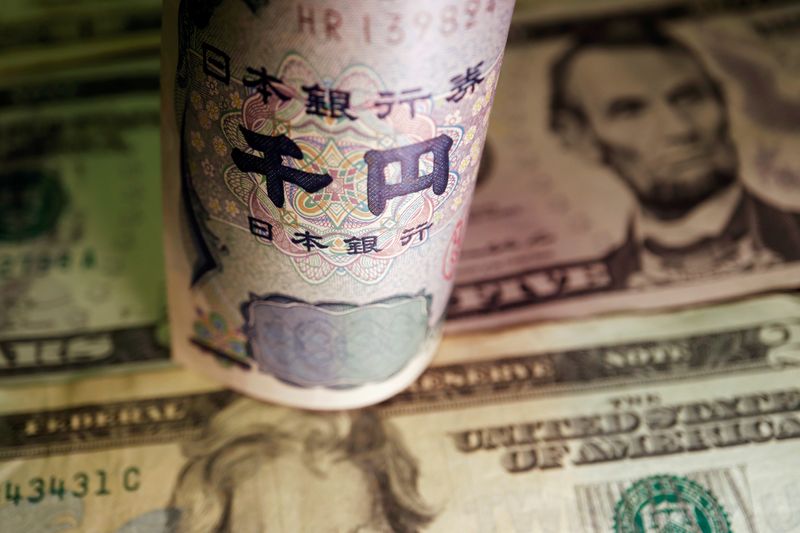
By Patturaja Murugaboopathy and Gaurav Dogra
(Reuters) – Asia’s overseas reserves have dropped this yr as central banks have intervened to assist their currencies, with Japan, Indonesia and South Korea main the declines.
International reserves throughout 12 nations, from Japan to India, fell about $50 billion to $7.5 trillion by the tip of June. That they had risen 2.2% in the identical interval final yr.
International investor flows into Asian bonds dropped 34% within the first half of this yr from a yr in the past, knowledge from exchanges and bond market associations confirmed.
Though the decline in reserves shouldn’t be extreme sufficient to set off a monetary disaster or trigger nations to battle with their import funds, given that the majority have more healthy steadiness sheets and managed exterior liabilities, analysts observe that it may nonetheless have an effect on investor sentiment and will result in portfolio outflows.
The import-cover ratios, which point out the variety of months a rustic can maintain imports if all different inflows stop, have elevated for India, South Korea, and China this yr. Nonetheless, these ratios have declined for nations equivalent to Malaysia, Indonesia, and Thailand, based on calculations by Reuters.
Asian currencies have fallen sharply within the first half of the yr because the Federal Reserve’s hawkishness and excessive yields buoyed the greenback. The yen has been the largest regional loser, with about 11% drop in opposition to the greenback, which prompted a number of rounds of suspected interventions by its central financial institution to assist the forex this yr.
In the meantime, Indonesia’s central financial institution additionally raised its rates of interest in April, to curb the rupiah’s forex slide and forestall capital outflows.
With main occasions equivalent to U.S. elections and potential shifts within the Federal Reserve’s financial coverage arising this yr, regional currencies are anticipated to expertise heightened volatility within the second half.
“When the U.S. Fed begins slicing charges ultimately, probably inflicting short-term depreciation within the greenback, the credibility of Asian central banks shall be examined,” stated Saurav Sen, senior analyst at Gimme Credit score.

“Nations which have the power to extend reserves at the moment to maintain their currencies aggressive vs. the greenback will have the ability to handle volatility. Nations like China and India come to thoughts,” Sen stated.
Bucking the development, India’s overseas reserves rose 4.9% to $653.71 billion within the first half of the yr.